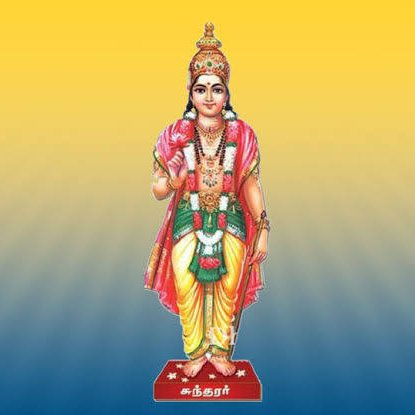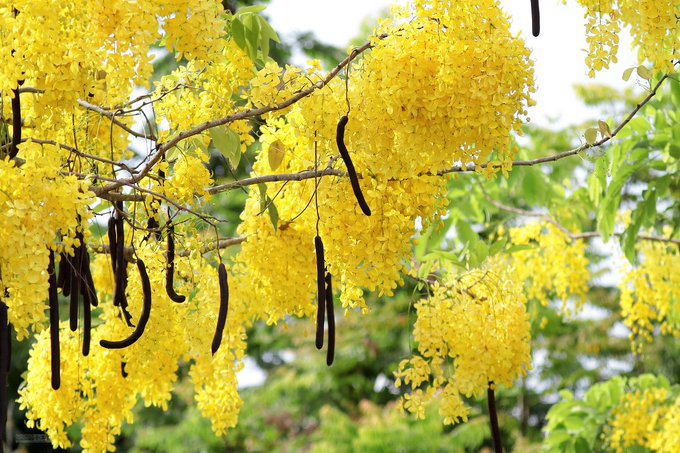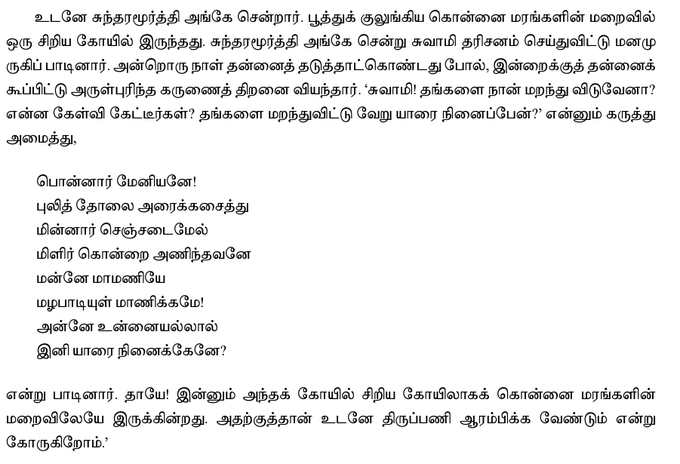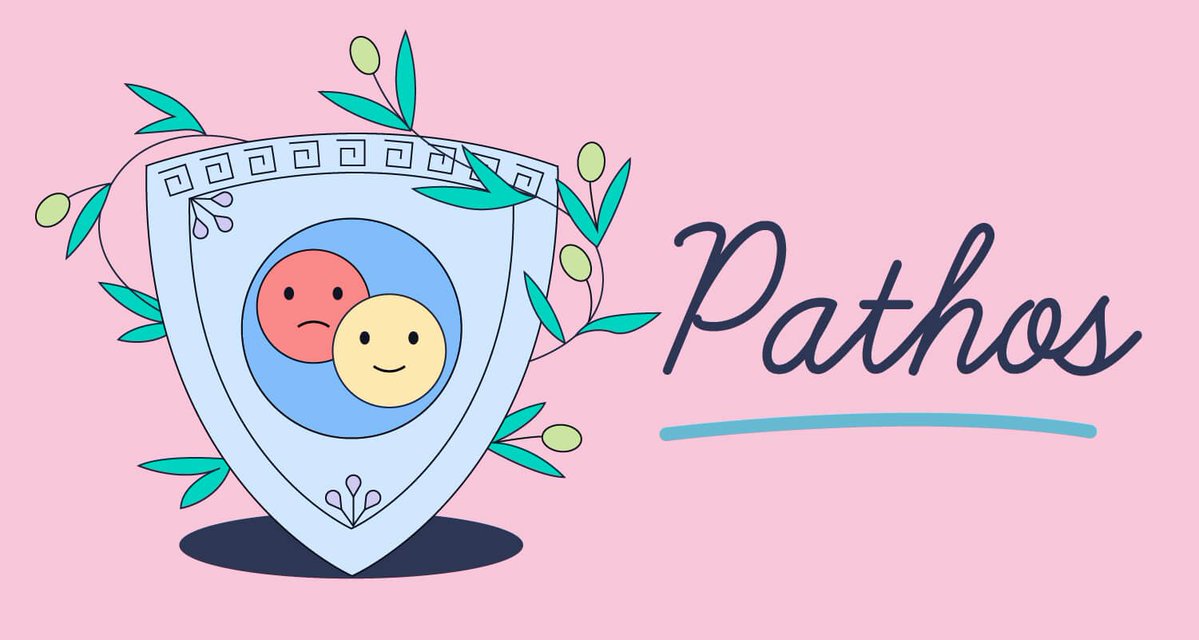Today is Shri Rama Navami.
This is based on lunar calendar - 9th day of Shukla Paksha in Chaitra month (Panguni)
Pushkar Bhatnagar, an IRS officer purchased the license for Planetarium Gold software in 1999 to scientifically date the Ramayana.
His results were shocking (1/9)
This is based on lunar calendar - 9th day of Shukla Paksha in Chaitra month (Panguni)
Pushkar Bhatnagar, an IRS officer purchased the license for Planetarium Gold software in 1999 to scientifically date the Ramayana.
His results were shocking (1/9)

This method of employing software to date the Ramayana on the basis of astronomical references
mentioned in source text , was pioneering.
Valmiki's aim was not to plant evidences. His astronomical references are recorded incidentally, as ancillaries to the main subject: Sri Ram
mentioned in source text , was pioneering.
Valmiki's aim was not to plant evidences. His astronomical references are recorded incidentally, as ancillaries to the main subject: Sri Ram

Valmiki states the position of different planets with regards to zodiac constellations and nakshatras in Bala Kaanda 1/18/8-9 verses at the time of Ram's Birth.
This can be used to complete Ram's astrological chart.
When this data is plugged into the software, we get his DOB!
This can be used to complete Ram's astrological chart.
When this data is plugged into the software, we get his DOB!
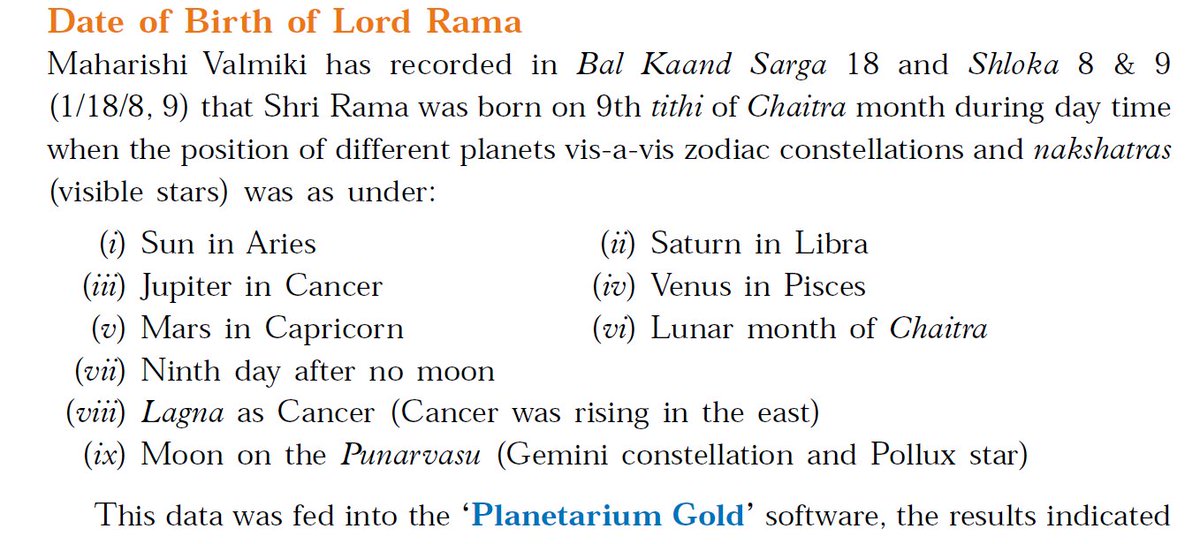
Keeping the location co-ordinates as Ayodhya (25°N 81°E), Planetarium Gold points to the following date as Ram's Birthday:
10th January, 5114 BCE , 12-1 PM
When this date based on solar calendar is converted to lunar calendar, it was the 9th day of Shukla Paksha in Chaitra.
10th January, 5114 BCE , 12-1 PM
When this date based on solar calendar is converted to lunar calendar, it was the 9th day of Shukla Paksha in Chaitra.

Bharat was born the next day, 11th January 5114 BC, 6AM
Lakshman and Shatrughan were born on 12th January 5114 BC
4 brothers born on 3 consecutive days!
With this date as the fulcrum, the entire events of Ramayana can be corroborated based on further astronomical data (5/9)
Lakshman and Shatrughan were born on 12th January 5114 BC
4 brothers born on 3 consecutive days!
With this date as the fulcrum, the entire events of Ramayana can be corroborated based on further astronomical data (5/9)
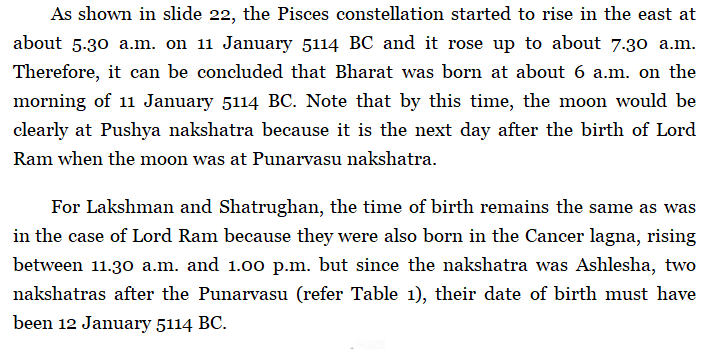
When Dashrath wanted Ram to be king, Sun, Mars & Rahu had surrounded his nakshatra, citing generally unfavorable conditions for him.
Plug this data again & the software mentions 5 Jan 5089 BC as the date of Ram's exile (vanavaasa)
He was 25 years old, as mentioned by Valmiki
Plug this data again & the software mentions 5 Jan 5089 BC as the date of Ram's exile (vanavaasa)
He was 25 years old, as mentioned by Valmiki
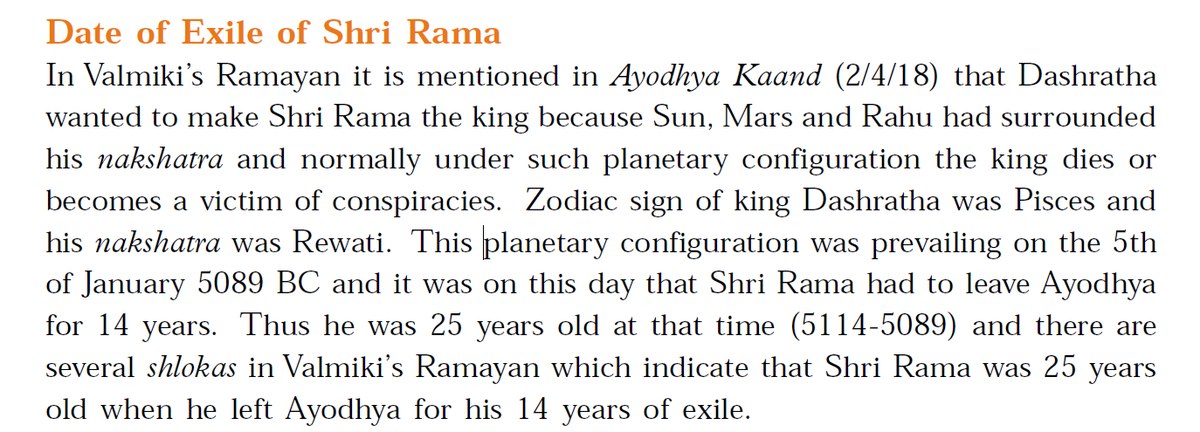
In Ram's 13th year of exile, he fought with Khar-Dushan. Valmiki mentions this date as Amavasya & it was a solar eclipse.
When plugged with this data, the software gives date as 7 Oct, 5077 BC with a solar eclipse visible from Panchavati (20°N 73°E) (7/9)
When plugged with this data, the software gives date as 7 Oct, 5077 BC with a solar eclipse visible from Panchavati (20°N 73°E) (7/9)

In Summary, a Timeline of Ramayana based on Astronomical Data:
10/1/5114 BCE – Rama Born at Ayodhya
5/1/5089 BCE – Rama, age 25, leaves Ayodhya for 14 year exile
7/10/5077 BCE – Rama, age 37, 13th year of exile, battles Kar-Dhushana in Panchavati
14/9/5076 BCE – Hanuman… twitter.com/i/web/status/1…
10/1/5114 BCE – Rama Born at Ayodhya
5/1/5089 BCE – Rama, age 25, leaves Ayodhya for 14 year exile
7/10/5077 BCE – Rama, age 37, 13th year of exile, battles Kar-Dhushana in Panchavati
14/9/5076 BCE – Hanuman… twitter.com/i/web/status/1…
Is such a validation via software necessary for our epic?
Indeed, no evidence is needed to prove the existence of the embodiment of Dharma who lives in our hearts.
To the skeptics: Can so many events that match with astronomical data be just a coincidence?
Indeed, no evidence is needed to prove the existence of the embodiment of Dharma who lives in our hearts.
To the skeptics: Can so many events that match with astronomical data be just a coincidence?
This is a greatly simplified version of the study, those curious can read the full details in Pushkar Bhatnagar's book, "Dating the Era of Lord Ram", Rs.395 (paperback), Rs. 302 (Kindle)
Amazon Link:
amzn.to/3ZsGSwp
Amazon Link:
amzn.to/3ZsGSwp
If you liked this thread, kindly follow @labstamil for more such content. Do share this handle with your friends!
Please RT the first tweet in the thread to share this content with your followers:
Please RT the first tweet in the thread to share this content with your followers:
https://twitter.com/labstamil/status/1641308997121634304?s=20
• • •
Missing some Tweet in this thread? You can try to
force a refresh


